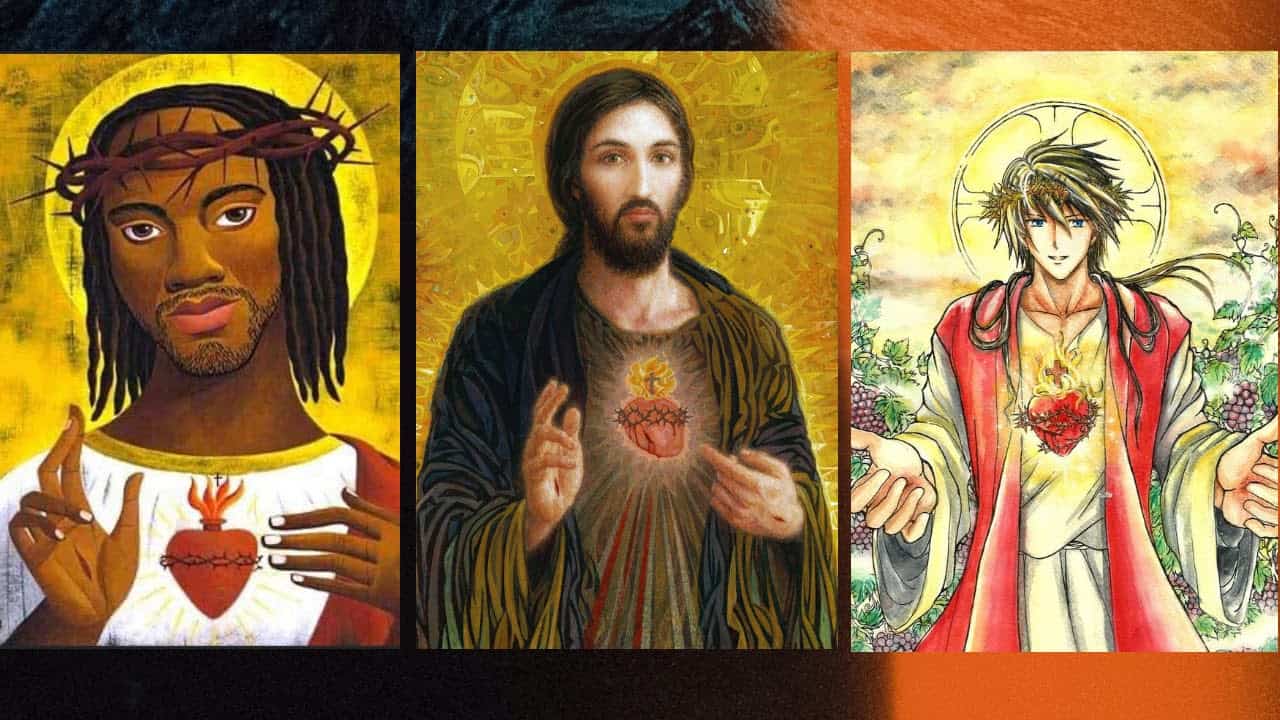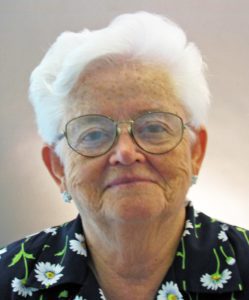
Sr. Helen Robert Boyd offered this reflection for the Feast of the Sacred Heart at Mass in Dominican Convent, Sparkill, NY.
The three readings of today point to the theme of God’s undying love. Whether the parental image of God in the Book of Hosea, the reminder of Saint Paul that our lives should be rooted in love, or John's remembrance of the final act of Jesus loving us to the bitter end at the brutal stabbing of his side on Calvary—all is love.
This essential element of our relationship with God was also reinforced in 1673 when a young woman, Mary Margaret Alacoque, received a vision from God depicting Jesus’ human heart surrounded by a crown of thorns and a bursting flame. This image still worn by many of us over the years depicts what we celebrate today. It is the culmination of the two greatest mysteries of the Incarnation and Redemption which we have celebrated over the past months. In this revelation, we have a clear and undeniable picture of the human heart of Jesus and his inexhaustible love for each of us.
Surely in his first thirty years of sharing in our human condition, he plumbed the depths of what it means to be a human being, allowing himself to be a poor laboring man, sharing a family life, bearing the sufferings of living in an occupied land beholden to the princes of this world, knowing the loss of a beloved earthly father, and taking care of a widowed mother.
Does this all sound familiar? His was a total immersion of the Son of God into our humanity. Henceforth, no one can say our God doesn't understand our earthly lives. The incarnation in Jesus revealed to us in no uncertain terms the total vulnerability and humility of our heavenly Father. As Pope Francis said, "The Heart of Christ is so great it wants to welcome us all into the revolution of tenderness."
And as if that was not enough, Jesus spent three years revolutionizing our misconceptions of God. Using his favorite mode of teaching, namely through parables, Jesus' underlying theme was always love, whether it was his compassion for the Widow of Nain (Luke 7) or the constant care for the lost individuals as in the Good Shepherd (John 10), or the merciful Father of the Prodigal Son (Luke 15), the common denominator is always love. Saint John summarizes it well: "This is how God showed his love for us. God sent his only son into the world that we might live through him." (1 John 4)
And then Jesus punctuated his last three years with his final outpouring of love in the act of laying down his life in the most ignominious fashion. In this manner, Jesus demonstrated the depths to which his unconditional love would extend to prove that God in the person of his Son would allow no suffering however extreme, to place limits on his unquenchable love for humankind.
The revelation to Saint Margaret Mary Alacoque of a human heart surrounded by a crown of thorns manifested the pain of a broken heart and a fire that keeps burning with love. At the end of our lives, the only thing that matters is how we have responded to Jesus’ request, “Love one another AS I have loved you." That little conjunction “as” should lead us to question, “How far does our love extend? Does it have limitations or is it all-encompassing?” The Greek singer and politician, Nana Mouskouri, reminds us in her rendition of the beautiful song, “Love Changes Everything,”* that our answer makes all the difference.
The Lyrics are:
Love Changes everything hands and faces,
Earth and sky
Love changes everything . . .
How you live and how you die.
*”Love Changes Everything,” composed by Andrew Lloyd-Webber, Charles Hart, and Don Black in 1989 for the musical, Aspects of Love.
Sister Helen R. Boyd, OP
Sister Helen resides in Dominican Convent where she serves
on the Life Enrichment Committee and co-chairs the
Mission Outreach Committee.
